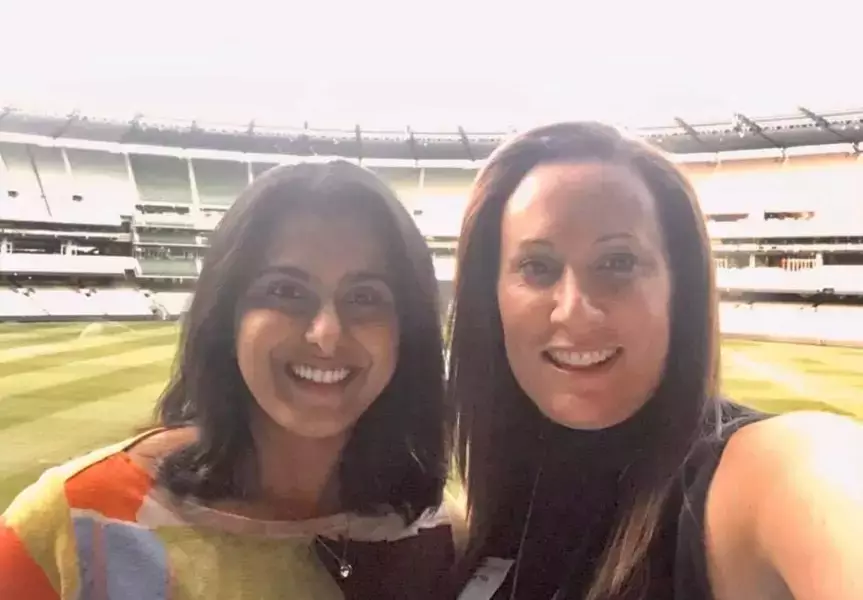This article was written by The Womens Game and first published on Sep 3 2020.
The lack of women coaches in football inspired state league championship winning coach Aish Ravi and close friend Jules Hay to find a way to inspire other women to take on a leading role off the field.

They then decided to take things further by starting the ‘Women’s Coaching Association’, to help connect existing women coaches and inspire them to learn from each other.
“We started WCA to give women a platform to connect to other women coaches and share their voice,” explains Ravi who is completing her PhD on women in football at Monash University, with a focus on coach education. “Many sports have women as an add on and often their voice is drowned out and we wanted to make women central.”
Ravi, who coached Bentleigh Cobras to the State League Three title in 2019, is conscious of the role women play in supporting each other in what is often a male dominated industry.
Women coaching numbers in Australian football are very low compared to men. In 2019, there were 38,715 registered coaches of which only 20% or 7,733 were female.
“Our mission with WCA is to encourage and empower women and girls to coach sport,” says Ravi. “We do that by providing support, network opportunities, education and a voice for women and girls who coach.
“Our work is motivated by our desire to be inclusive and provide a welcoming, collaborative and safe space for all to support women and girls who coach sport.
“We need to show women and girls who coach, they have a platform to celebrate and encourage each other and to empower more women and girls to coach sport.”
Ravi, an economics teacher by profession, is completing her Licence B in coaching. She has coached at the NPLW junior level for Bayside United and Heidelberg United. She is also heavily involved in cricket and Aussie Rules, with her all round sporting background holding her in good stead when working with women athletes from a multitude of different backgrounds.
Ravi also co-founded ‘Lead Between the Lines’ with fellow PHD researcher Hay, an organisation that helps educate councils and sports clubs on how to build gender equality and foster inclusive practices on and off the field, specialising in coach development.
This feeds into her role with WCA which she hopes will provide a voice and assist in advocacy work in the sports setting for women and girls who coach. She is adamant WCA will help nurture and develop coaches using methods that have proven to work.
“We want to provide targeted learning and mentoring to support the needs of coaches, and crucially this is informed by evidence based research.”
Ravi encouraged women from all sports to join WCA, insisting this was for all women and girls in all sport.
“We want all women coaches from all sports to be working together to share resources and ideas to support each other. We can all learn from what other sports are doing. We want this to break sport code war barriers too.”



